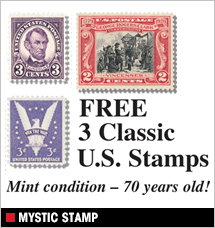Dollar Sense
Potpourri: Stuff You Should Know about an Important Resource and the Latest Scams to Avoid

Are You Visually Impaired?
The U.S. government is offering a free currency reader to eligible individuals who fill out an application. The point is to make U.S. currency accessible to all individuals, by providing a way to identify the denomination. The readers use a AAA battery, which is included, and identifies a bill’s denomination in one of three ways: a clear, natural voice, a pattern of tones, or a pattern of vibrations for privacy. The vibration mode is also helpful for people who are hearing impaired as well as blind.
You can download an application here: https://www.moneyfactory.gov/uscurrencyreaderform.html. Or call (844)815-9388 or email questions to This email address is being protected from spambots. You need JavaScript enabled to view it. .
When the IRS Comes Knocking… Is It Really the IRS or a Scam Artist?
If you’re like me, you might say a scam artist is less scary than a real IRS agent, and you could be right. But thieves know we all get nervous when we think the IRS is paying attention to us. They assume — correctly — that many people will fork over money when someone claiming to be an IRS collection office demands it. If someone knocks on your door, saying he or she is from the IRS, you need to calm yourself, don’t let the person inside, and find out if this really is the IRS. To combat the wave of fake IRS agents combing the country, the IRS assures us of a few points:
- If they must talk to us, they generally initiate contact through the mail.
- There are times when some IRS employees (investigators and collection agents) do make house calls. But they are required to carry two forms of official credentials. Insist on seeing both, and take a close look at them.
Genuine IRS employees will never
- Demand a specific form of payment (such as a prepaid debit card or cash).
- Refuse to let you ask questions about the tax bill they claim you owe.
- Threaten you with law enforcement.
If someone comes to your door claiming to be from the IRS but you have reason to doubt, excuse yourself, lock your door, and call the police. If possible, look out the window to see if you can give the police a description of the individual’s car and license plate number.
You can learn more at this website: https://www.irs.gov/uac/newsroom/how-to-know-its-really-the-irs-calling-or-knocking-on-your-door
Miscellaneous Email Scams That Landed in My Inbox Recently:
Dear Valued Customer:
Thank you for Banking with Wells fargo. You have a new message available for you to view online, we identify some suspicious multiple error to login on your online banking account, we have place a verification process on your account we have put limitation to be sure that your Wells fargo account has not be hacked, all transaction will be on pending until this process is confirmed. please verify the details on your account. To view this message.
Of course, I don’t have a Wells Fargo account, so this was a true phishing expedition that could catch anyone who does have an account there. But apart from that, notice these things:
- Spelling errors, such as capitalizing Banking and not capitalizing Fargo. Would a professional bank make such elementary errors?
- Grammar errors, such as your “account has not be hacked.” Scammers are not known for being well-versed in English. In fact, this is a sign that they are not even within the U.S.
- Below the message was a link that appears to go to Wells Fargo Bank, but surely goes to some dark, nefarious place that lets thieves rob you. I took out the link so that nobody would inadvertently click it.
- Before I eliminated the link, I ran my cursor over it to see what the real online address was. In this case, it was “romanticnails” in Australia. Not sure what romantic nails or Australia have to do with banking, but I’m sure they are not part of Wells Fargo Bank.
- Clever thieves now put a link at the bottom that says “unsubscribe” or “to speak to an agent.” They’re counting on you to be angry and demand to be taken off their list. And… bingo… one click and they’ve got you. Ignore these links. Instead, forward the whole thing to This email address is being protected from spambots. You need JavaScript enabled to view it. .
Here’s another one, simpler but probably effective.
Dear Customer
A payment has been made to your account. To view the details of the payment, please open attached PDF file.
Regards
The Internet Banking Team
Standard Bank
Again, forward the message to This email address is being protected from spambots. You need JavaScript enabled to view it. . Does it do any good? It doesn’t seem like it, but security experts say it helps them track scams, and every now and then, I hear of the scams being busted.
And one that came in during tax season: Thieves know that many of us use Intuit products (such as Turbo Tax) to file our taxes at home. So they know that if we saw a message purportedly from Intuit, we might bite.
Dear Customer,
This is a notification from your payments processor, Intuit Payment Solution.
Unfortunately we were unable to issue a deposit of $4530.34 USD to the bank account associated to your Quickbooks Payment Account. Generally this indicates an incorrect routing number, account number or both. You may wish to contact your bank to verify your account details.
Once you've confirmed your bank account details please go to your — Quickbooks Account — and update your account information for deposit to be issued.
Follow the link below to update your bank account.
— https:// merchantcenter.intuit . com/msc/portal/ acctMgmt—
Thank you for choosing Intuit Payment Solutions!
Sincerely,
Intuit Payment Solutions,
21215 Burbank Boulevard, Suite 100
Woodland Hills, CA 91367
The Feds Catch a Bunch of Lottery Crooks
The Federal Trade Commission (FTC) announced in May that the Department of Justice (DOJ) has eight lottery scammers in custody in North Dakota, after being extradited from Jamaica.
These eight are charged with tricking at least 90 people out of more than $5.7 million by convincing them they’d won the Jamaican lottery. This was the combination of years of work by the FBI, the US Postal Inspection Service, the US Attorney’s Office, the DOJ and the government of Jamaica.
You should know, playing a foreign lottery is illegal, by phone or by mail. If you are told you won a prize but you must pay for it in any way (by wiring money, by gift card or prepaid card) you are being scammed, says the FTC. The FTC warns that buying even one foreign lottery ticket means your name is added to lists that crooked telemarketers buy and sell to each other. That means you’ll get even more calls and letters from thieves.
Often, thieves get away with their crimes because victims are embarrassed to admit they’ve been scammed. But the list of victims includes highly educated, sophisticated individuals, of all ages and socio-economic backgrounds, so don’t worry, you’re in good company.
The FTC advises, if you get mail that looks like a foreign lottery, give it to your local postmaster. The FTC asks that you help them fight these scams by letting them know when you think you’ve spotted a foreign lottery offer. Log onto FTC.gov. Near the top, you’ll see a link that says “File a Consumer Complaint,” or just type “complaint” into the search window. The FTC takes your concerns seriously. Your complaint may be the one that puts thieves behind bars.
Teresa Ambord is a former accountant and Enrolled Agent with the IRS. Now she writes full time from her home, mostly for business, and about family when the inspiration strikes.



























































